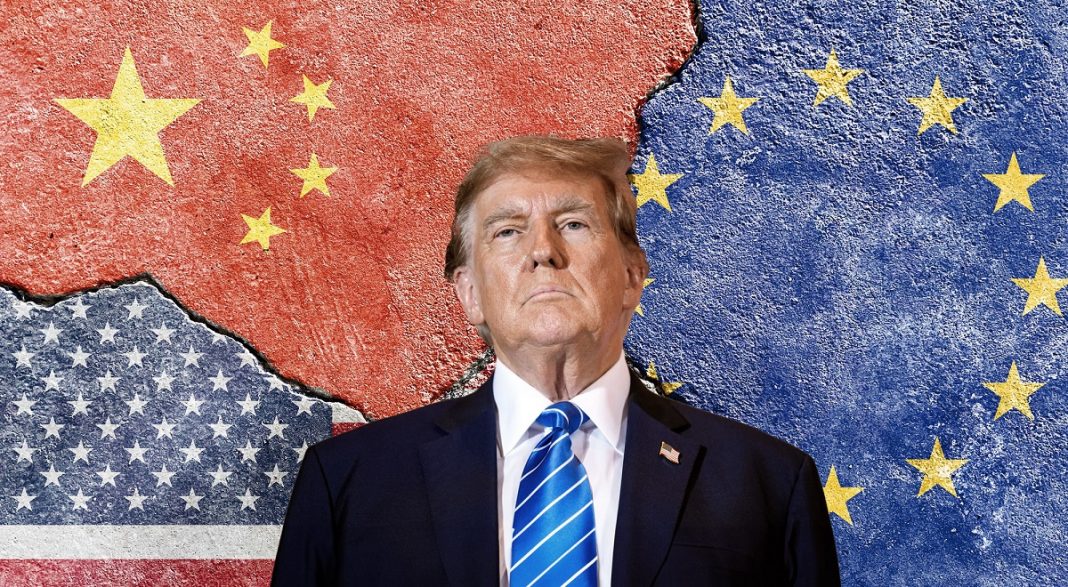Gabriel G. Tabarani
For decades, U.S. policy in the Middle East has been built on a fragile scaffolding of wishful thinking, self-deception, and outright lies. These lies were not harmless fictions; they provided cover for failed strategies, justified disastrous wars, and helped entrench the very dynamics Washington claimed to oppose. Now, as America’s influence wanes across the region, the costs of these illusions are impossible to ignore.
Take Gaza, where the Biden administration repeatedly assured the world that a cease-fire was imminent, that it cared equally about Israeli and Palestinian lives, and that Saudi-Israeli normalization was around the corner. None of these claims had any grounding in reality. The United States refused to use its one real leverage—conditioning military aid to Israel—to halt the bombardment. It claimed to champion Palestinian statehood even as Israeli leaders made clear they had no intention of allowing it. These words rang hollow to everyone in the region, but Washington kept repeating them. The performance was less about shaping outcomes and more about maintaining a façade of control.
This habit is not new. For decades, U.S. officials posed as neutral mediators while tilting decisively toward Israel. They promoted “peace processes” that perpetuated the status quo more than they challenged it. They spoke the language of democracy and human rights while arming autocrats from Cairo to Riyadh. Each failure begot another, and rather than confront the consequences, Washington doubled down, layering fresh lies atop old ones.
The anatomy of these failures is depressingly familiar. First comes the misreading of reality—believing that Palestinians will accept U.S.-brokered proposals they find humiliating, or that sanctions will moderate Iran’s behavior. Then comes the shock when events unfold otherwise: Hamas winning an election, Assad surviving a civil war, the Taliban sweeping back into Kabul. Finally comes the lie: officials insist success is just around the corner, even as the evidence screams otherwise.
The problem is not simply mistaken analysis; it is the refusal to learn. U.S. policymakers have been surprised by the same dynamics time and again: the resilience of authoritarian regimes, the power of local grievances, the futility of propping up handpicked “moderates.” Yet the same strategies are dusted off and tried again, their failures rebranded as near-successes. No accountability follows. Optimism becomes institutionalized, a reflex rather than a conviction.
This cycle of self-deception has hollowed out American power. Once, Washington could impose its will—on Israel, on Arab states, even on distant battlefields. Today, its words carry little weight. Israel brushes aside U.S. admonitions. Arab publics and leaders alike treat American pronouncements with cynicism. Militias, insurgents, and regional powers have grown adept at outlasting and outmaneuvering Washington.
The result is a paradox: the less influence the United States has, the louder it talks. True power requires no fanfare. Yet American officials increasingly fill the void with empty statements—insisting a two-state solution remains viable, or that military pressure alone can bring Iran to heel. These are not serious strategies but placeholders, meant to project a sense of agency where little exists.
It is telling that, when Donald Trump returned to office in 2024, parts of the Arab world breathed a sigh of relief. This was not because Trump was liked—his policies tilted brazenly toward Israel and emboldened autocrats—but because, unlike his predecessors, he dispensed with the moral pretenses. He did not drone on about a two-state solution no one believed in. He did not feign concern for Palestinian rights he had no intention of defending. For many in the region, cynical honesty was preferable to sanctimonious lies.
None of this absolves local actors of responsibility. Palestinians are divided, leaderless, and consumed by anger. Israel, unchecked, has grown more brutal and expansionist. Arab regimes exploit American missteps for their own purposes. Yet the United States cannot pretend that its serial failures are accidents. They are the product of a system that rewards optimism, penalizes candor, and mistakes rhetoric for policy.
The danger is not only that these lies corrode U.S. credibility abroad. They also warp domestic understanding of the Middle East. Each new war or peace initiative is presented as a decisive turning point, only for the outcome to look eerily familiar: more violence, more instability, more resentment. Americans are told they are defending democracy or fighting terrorism, but the reality is often chaos, disillusionment, and the empowerment of forces Washington never intended to strengthen.
It is long past time for U.S. policymakers to abandon the illusions. That means admitting hard truths: that the two-state solution is dead, that military aid gives Israel carte blanche, that sanctions rarely change regimes’ behavior, and that American power cannot remake societies at will. Honesty will not magically solve the region’s crises. But without it, Washington will remain trapped in its own hall of mirrors—repeating the same promises, watching the same failures unfold, and wondering why nobody believes a word it says.
America’s greatest challenge in the Middle East is not a lack of intelligence, weapons, or resources. It is the courage to see the region as it is, not as Washington wishes it to be. Until that shift occurs, the lies will continue—and so will the failures they conceal.
This article was originally published in Arabic on the Asswak Al-Arab website


